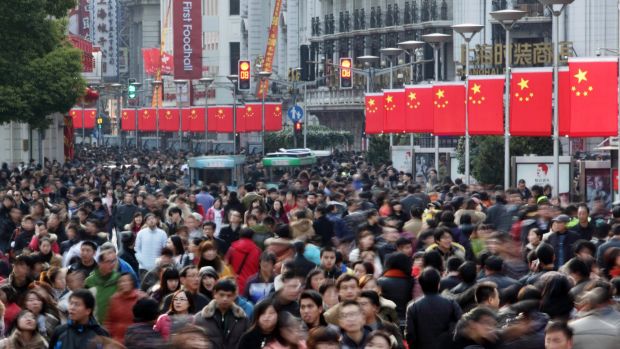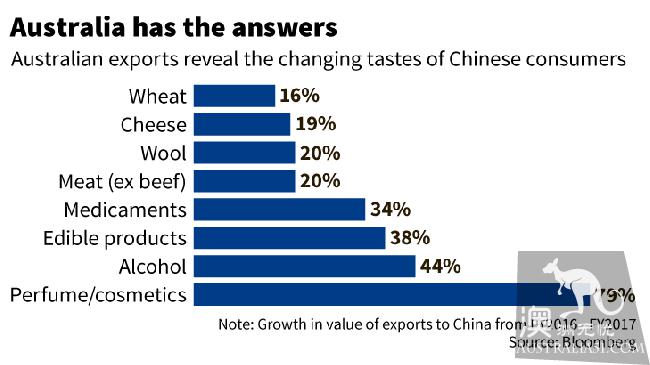Soon after opening in Sydney's Chinatown, the store became famous for selling a "magic" pill. The kangaroo pill, called "Kangaroo Power," was almost snapped up and is said to boost sexual desire. In another store 10 minutes from it, kangaroo essence is also popular with customers, selling only one can remaining.
According to the Sydney Morning Herald, both stores belong to Australian seller International (AuMake International). This is a Chinese purchasing agency that buys products from local suppliers in Australia and sells them to Chinese tourists and consumers. Two months ago, Australian sellers listed on the Australian Stock Exchange and are now trading at nine times the offering price. The company plans to open another store in downtown Sydney next year.
China's economic growth has brought a decade-long mining investment boom to Australia. Today, the world's second-largest economy has a more diversified consumer demand, with more and more Chinese buying Australian wines and vitamin supplements, or coming to Australia to study and travel. However, Chinese investors' enthusiasm for Australian mining has not subsided.

Of the developed countries, Australia is the economy most dependent on China. (photo by Sydney Morning Herald)
Steven Englander, head of research strategy at Rafiki Capital Management, a Hong Kong-based hedge fund, said Australia's economic performance would be a good reflection of whether China was on the rise or fall cycle. Because the change in demand for Australian products will reflect changes in China's economic activity.
China's impact on Australia's economy can also be seen from trade data released earlier this month. China's crackdown on pollution has reduced Australia's mineral exports and sent Australia's trade surplus sharply lower than expected in October.
Australia is now the most dependent economy of the developed world, with 1/3 of its exports shipped to China. Of these, 8 percent were consumer goods last year, up from 2 percent in 2013, while minerals fell to 56 percent from 62 percent in 2013. This makes the Australian dollar better reflect China's economic growth.
The change in the share of Australian merchandise exports will be a gauge of changes in Chinese consumers' tastes. While iron ore and coal are still Australia's most exported goods to China, sales of Australian consumer products to China are also surging.
In the year to June 2017, Australia's exports of edible goods to China rose 38 percent, medical services increased 34 percent, alcohol rose 44 percent, and oilseed exports rose nearly 1,000 percent.

In fiscal year 2016-2017, Australia's exports of consumer goods to China increased. (Bloomberg Photo)
And many wealthy Chinese, even if they don't buy Australian hand cream and wine, send their children to Australia to study or travel to Australia to capture the beauty of (Bondi Beach) on Bondi Beach. In the year to June 2017, Australian exports of education to China rose 260 percent to A $9 billion, up 260 percent from a decade ago. Last year, the number of Chinese visitors to Australia exceeded one million, and the number of Chinese tourists is expected to more than triple in 2026.
According to (Bloomberg) economists at Bloomberg, China's growth will moderate in 2018, with growth expected to slow to 6.4 percent from 6.8 percent this year. However, consumption remains a key support for China's future growth, and economists at China International Capital Corporation (CICC), a prominent Chinese investment bank, said China could overtake the United States as the world's largest importer over the next five years.
"the focus of Australia's economic construction is shifting from building physical infrastructure to developing social infrastructure, and economic growth from investment-driven to consumption-driven. At the same time, Australia is emerging from the mining boom, focusing on economic growth in non-mining sectors. " "these changes are highly complementary and offer great potential for Australia's economic development," (Steven Ciobo), Australia's trade minister, said in an email.